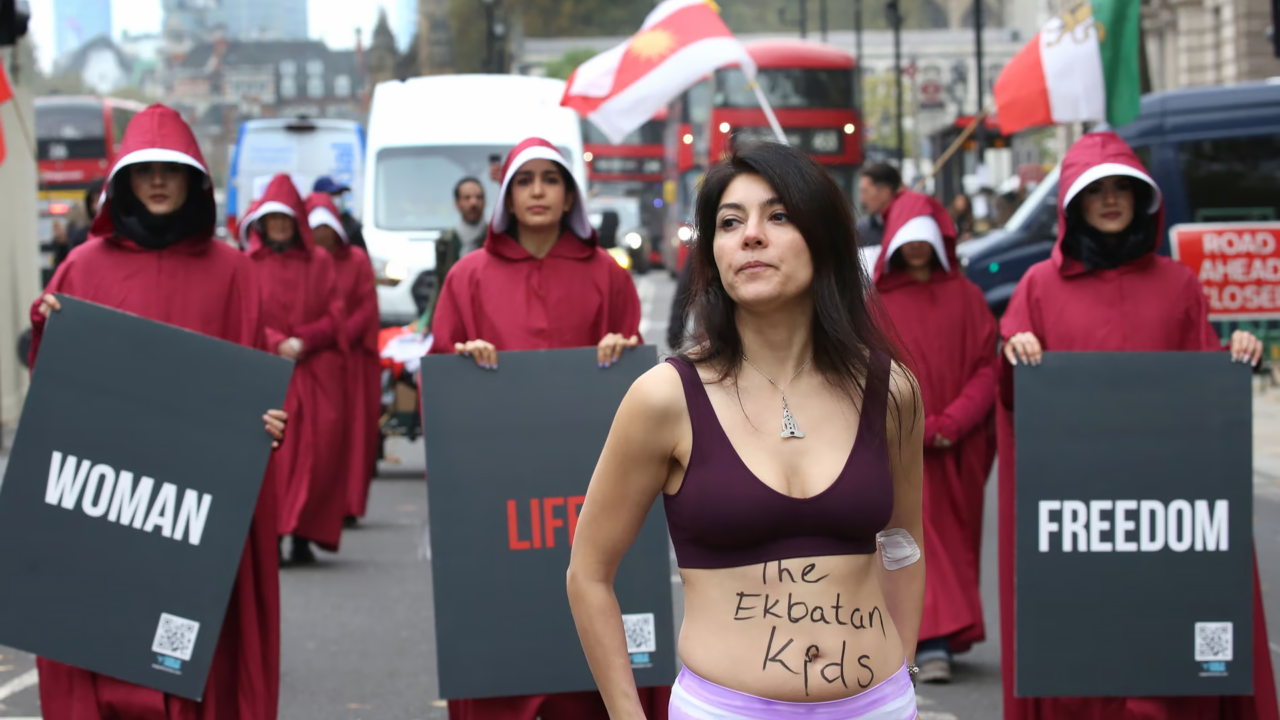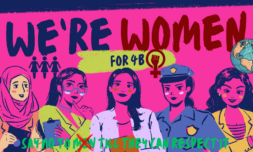Policies targeting those who refuse to cover up in Iran are growing increasingly strict, with many now at risk of being labeled as mentally ill and subjected to so-called treatment.
Maya Angelou once said, ‘Whenever a woman stands up for herself – whether she realizes it or not – she stands up for all women.’ This month, activists worldwide have not only taken a stand but have physically stripped in solidarity with Iran’s Science and Research Girl, Ahoo Daryaei.
Earlier in November, Daryaei undressed following a confrontation over her veil with members of the Basij, a paramilitary force under the Islamic Revolutionary Guard Corps. Her protest sparked global demonstrations.
In London, human rights groups such as One Law for All and FEMEN stripped and painted messages on their bodies at Piccadilly Circus, while others marched in underwear or dressed as characters from The Handmaid’s Tale.
Similarly, in Brussels, forty women protested by stripping outside the Iranian embassy, drawing attention to Daryaei’s bravery and the broader struggle for human rights in Iran.
Despite widespread recognition of Daryaei’s protest as an act of courage, the Iranian administration swiftly labeled her ‘mentally ill’ and confined her to a rehabilitation center.
The positive news is that she has since been released; however, equally troubling are Iran’s plan to establish mental health clinics targeting women who refuse to comply with mandatory headscarf rule.
Mehri Talebi Darestani, head of the Women and Family Department at Tehran’s Headquarters for the Promotion of Virtue and Prevention of Vice, proposed a ‘hijab removal treatment clinic’ in Tehran.
According to Darestani, the clinic aims to provide ‘scientific and psychological treatment’ for those resisting the veil – whatever that is supposed to mean.
Officials have claimed that attendance at these clinics would be optional. This assertion is almost certainly untrue.




















